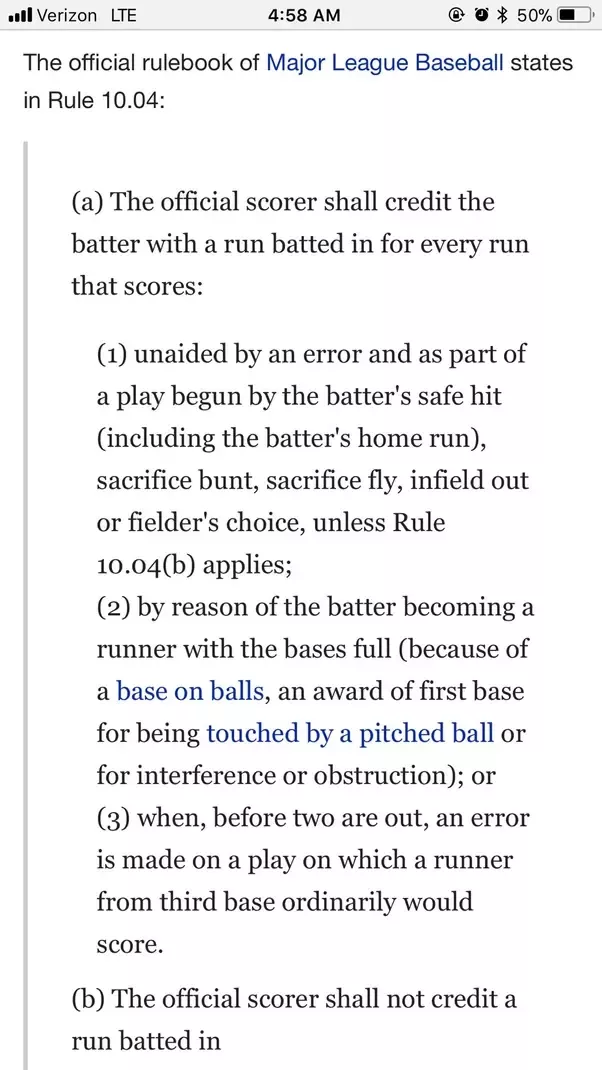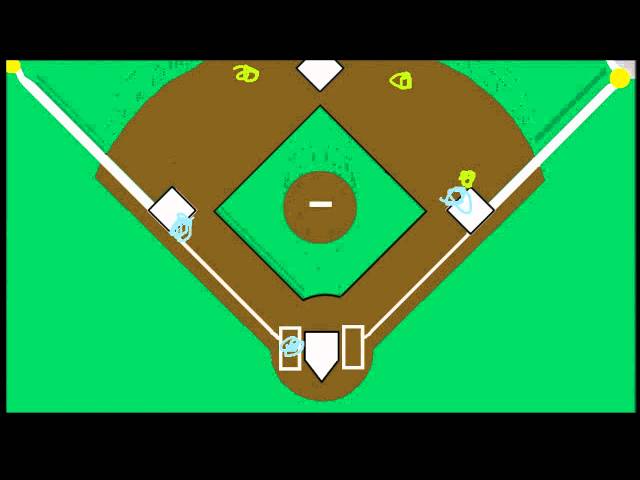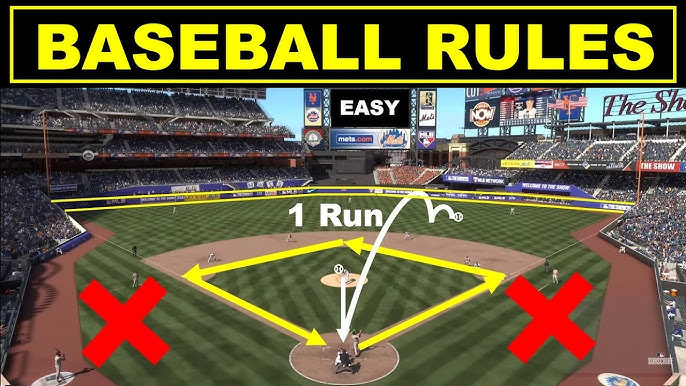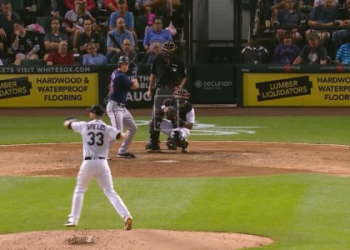Do you get an RBI on an error?
Now, this is one question folks might get all tangled up about, especially if they ain’t too familiar with how baseball stats work. So let’s break it down simple-like, just the way I see it. In baseball, an RBI, that’s “Run Batted In,” is a way to give credit to the batter when they do somethin’ that brings a teammate across home plate to score a run. But here’s the kicker – if that run happens ‘cause of an error, the batter don’t get credited with an RBI. Yep, that’s how it works in the big leagues.

What Exactly Is an RBI?
Alright, so RBI, or “Run Batted In,” is one of them stats that shows a batter’s contribution to getting points, or “runs,” on the board for their team. If a batter hits the ball – maybe it’s a single, double, triple, or even a home run – and a runner crosses home plate, that’s an RBI for the batter. Simple enough, right?
But not every time a run crosses home means there’s an RBI to be had. There’s some exceptions here. Baseball’s got its own rules when it comes to errors, which are mistakes made by fielders that let runners advance or even score.
So, When Don’t You Get an RBI?
Now let me tell ya, there are certain situations where a batter just don’t get an RBI, no matter if the runner scores or not. The main time this happens is if there’s an error made by a fielder that lets the run score. For example, if the ball slips out of the fielder’s glove, or they throw it bad, and that’s the reason a runner reaches home, well, the batter don’t get no RBI.

Another example would be when a batter grounds into a double play. That’s when the batter hits the ball, and the fielders manage to get two outs on the same play. Even if a run crosses home in this mess, no RBI goes to the batter. Double plays are considered a failure on the batter’s part in a way, so no one’s handing out RBIs for that.
Why Is It This Way?
Baseball’s got its reasons, I suppose. See, an RBI is meant to show when a batter helps his team by bringing in runs on purpose, like with a hit or even a sacrifice fly (that’s a pop-up hit to the outfield that gives the runner enough time to run home and score). But if it’s an error, well, that means the run didn’t come from the batter’s own skills. So, they don’t get that RBI credit.
When Can You Expect an RBI?
If there ain’t no error in the play, the most common way to earn an RBI is with a hit. Could be a nice solid single or a big ol’ home run. If the batter manages to smack that ball and send a teammate home, that’s an RBI. Other times a batter might get an RBI include a walk when the bases are loaded – now, that’s when the pitcher’s in a pickle, and the batter walks to first base, forcing the runners to advance, and one crosses home. Then there’s a hit by pitch with bases loaded – same idea, only the batter gets hit instead of walked.

But don’t get confused! An error means no RBI. That rule stays steady.
Are Errors Counted for Anything?
Errors, though they don’t count toward the batter’s RBIs, still count as stats – just not the ones most folks get excited about. Errors go on the fielder’s record, showin’ where they went wrong. And while folks might say errors make a big difference in the game, they don’t do nothin’ to help a batter’s RBI count. The batter has to earn those RBIs fair and square without help from the other team’s mistakes.
Some Common Examples of Errors That Don’t Earn an RBI
- A fielder drops the ball, lettin’ the runner reach home – no RBI.
- The fielder throws the ball wild to a base, and the runner scores – no RBI.
- A catcher misses a pitch, lettin’ a runner on third score – still no RBI.
How Baseball Keeps Score with Errors and RBIs

In baseball, they got themselves a thick rulebook – and that book says errors are different from a batter’s scoring efforts. Rule 9.12 is where all this is laid out, and that’s where they make it clear that errors ain’t gonna boost the batter’s RBI tally. It might seem like a small detail, but to baseball folks, it means a whole lot.
Conclusion – No RBI on an Error
So in short, anytime a run scores because of a fielder’s mistake – no RBI for the batter. It’s just the way they keep it fair. Batters need to earn those RBIs through their own skill, whether it’s a clean hit, a sacrifice, or some other play that don’t involve the other team messin’ up. And now, if you’re watchin’ a game and see a fielder mess up, just remember: that runner might be safe, but the batter ain’t gettin’ no RBI from it!
Tags:[baseball, RBI, error, run batted in, baseball scoring]
























